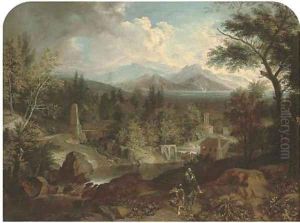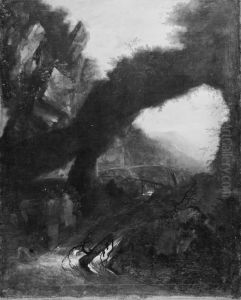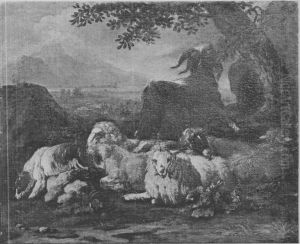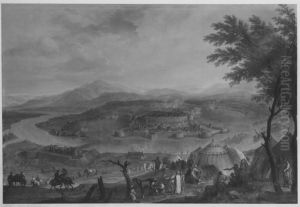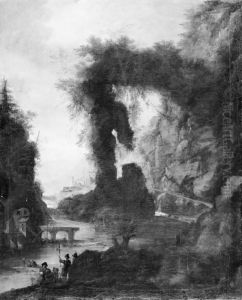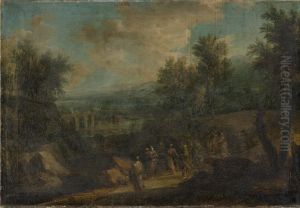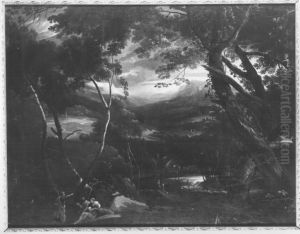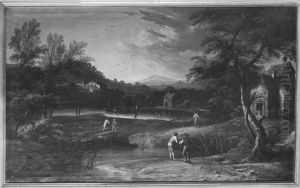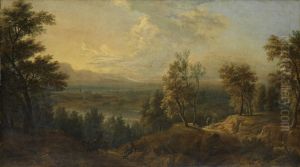Franz Joachim Beich Paintings
Franz Joachim Beich (1666–1748) was a German painter known for his landscapes, historical scenes, and religious subjects. Born in Ravensburg, Germany, Beich's artistic journey began under the influence of his father, Daniel Beich, who was also a painter. This early exposure to the arts nurtured his talents, setting the foundation for his future career. As he matured, Beich sought to expand his artistic horizon beyond the teachings of his father, leading him to travel and study under various artists across Europe, a common practice among artists of his time seeking to refine their skills and gain broader influences.
Beich's work is characterized by its detailed and dynamic landscapes, often serving as backdrops to historical and mythological narratives. His ability to capture the essence of nature, combined with a keen eye for composition, made his works highly sought after. He was particularly adept at incorporating elements of the Dutch and Flemish landscape traditions, which he encountered during his travels, into his own Germanic style, thus creating a unique blend that was both familiar and novel.
In the early 18th century, Beich found patronage under Maximilian II Emanuel, Elector of Bavaria, a significant turning point in his career that provided him with both financial stability and artistic freedom. This period was marked by prolific output and the creation of some of his most memorable works. Beich's paintings during this time not only reflect the grandeur of the Bavarian landscape but also serve as historical documents of the era's cultural and social milieu.
Despite his success, detailed records of Beich's life are somewhat scant, as is common with many artists of his era. However, his surviving works continue to be studied and admired for their beauty and historical value. They can be found in various museums and collections across Europe, testament to his enduring legacy in the world of art. Beich's influence extends beyond his paintings; he is also recognized for his role in the development of the landscape genre in southern Germany, contributing to the region's artistic heritage.
Franz Joachim Beich died in 1748 in Munich, leaving behind a body of work that remains appreciated for its contribution to the development of German painting in the 17th and 18th centuries. His legacy is that of an artist who was able to capture the spirit of his time while simultaneously pushing the boundaries of landscape and historical painting.
